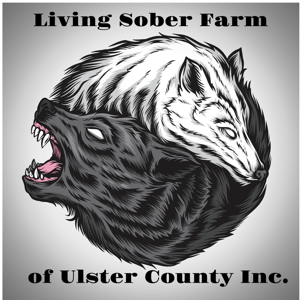Recovery communities work because they fill a need not available through other available treatment. The Farm offers an option for those people suffering from addiction who need more than the current system can give them. It it is for those who for one reason or another, do not want medications or for those who have tried it unsuccessfully. It is for that population who suffer from multiple addictions and need much more support. There are many people who find success with medications and outside counselling but there are also many who need more help and support than medication can give. The Farm is for those people for whom abstinence is the only real option.
Recovery housing is important for individuals in recovery, connecting them with services and badly needed personal support systems. It helps the individual build up confidence, build up their recovery capital and help them to find their value in this world while allowing them the necessary time to allow their damaged brains to heal. Having a meaningful job is important in rebuilding lives. Yet, people in recovery often face barriers in finding gainful employment due to their history. The Farm offers the resident a paying job on the Farm building up confidence, feelings of productivity, satisfaction and the value of being part of a community family.
The Farm is not a treatment center but it offers therapies that are naturally inherent in the farm's activities. Physical work, responsibility, accountibility, teamwork, and caring for the land, gardens and animals are crucial to get rid of the old life and cultivate a new one. The availabily of art, music, meditation, exercise on the premises, all serve to heal the (broken) mind, body and spirit. A quiet room will be available for those sleepless and anxious nights well known to those in recovery. Although the Farm does not offer clinical services, we encourage residents to continue counseling outside the farm.
Peer support is so important to the well being and recovery process. The heart of the farm family is in its support of each other with respect. Residents are fighting this journey together and understand like no other where their heads are at. Friends made at the Farm will be friends for life and many who survive the nearly 5 year abstinence program will become soldiers to fight against the horror of addiction and substance abuse.
Can we afford a Recovery Community?
In my research, the more important question is can we afford not to support recovery communities organizations (RCO's)?
RCO's help those in recovery reach the "five" year mark, giving them an 85% chance of remaining sober in their lifetime. People who are able to experience this become valued leaders in the fight. Unlike government funded grant programs, RCO's offer unlimited and long-term care and the support of family and community. It's difficult to get funding for RCO's because those precious funds are given to "evidence based" treatment programs and harm reduction tools. State governments receive tens of millions of dollars towards mental health services but RCO's only receive a small fraction. Fundraising for RCO's require more than having bake sales according to Ryan Hampton amd William Stauffer, in their article "Recovery community organizations need more than bake sales to help people survive addiction" STAT, Feb 4, 2022.They go on to say that leaders and elected officials "must think beyond in-patient treatment or detox centers" and create policies that support recovery community organizations which are the last to receive funding that translates into healthier communities. Too much money is being spent on resources that aren't accessible to all people who need help.
Bill Stauffer discusses why we need to invest in a long-term recovery that focuses on the five year paradigm. It Takes a (Recovery ) Village, Pub. Dec. 9, 2021
The business model for the farm allows it to evolve and eventually become self-sustaining.
In his article,"What We Miss When We Focus on Opioid Treatment and Recovery." Jason Schwartz discussed the limitations of medication assisted treatments (MAT). Pub. July 28, 2021
